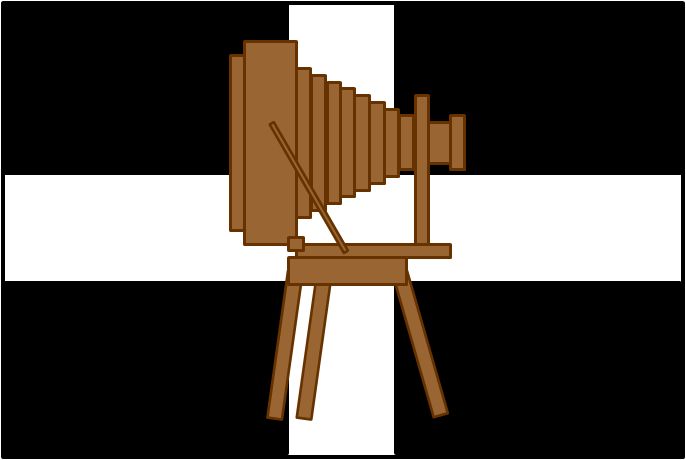Photographs taken 2008 to 2009
Just up the road from Redgate can be found the King Doniert's Stone. King Doniert (or King Durngarth) was one of Cornwall's last Kings, who was recorded as drowned while hunting (or fighting!) in the River Fowey at Golitha Falls in the year AD875. There are two granite cross bases, both of which probably had wooden crosses in them originally, and the smaller and stockier of the two stones (the King Doniert's Stone), has the inscription:
"Doniert rogavit pro anima" - or "Doniert ordered this [asks you to pray!] for his soul".
The second stone of the two is known as "The Other Half-Stone", and originally, both are likely to have been sited at either end of the original grave site which was nearby. Excavations have been made in the immediate area, and English Heritage has stated that these excavations revealed an underground rock-cut passage starting to the south east of the crosses, and ending in a cross-shaped chamber underneath the stones. No direct relationship has been able to be shown between these features, and according to the Cornwall Heritage Trust, these are thought more likely to be relics of early mining activity and prospecting in the area. No remains have been found either.
I have previously come across information that the stones were also originally sited on the opposite side of the road, but were at some point moved. But I know of no evidence for this. The opposite side of the road is also on slightly higher ground, which would be a more likely location for any original grave site, above the River Fowey where King Doniert reputedly met his end. The site was bought and enclosed, and is now managed by the Liskeard Old Cornwall Society.

King Doniert's Stone and "The Other Half-Stone"

King Doniert's Stone stands on a hill overlooking St.Cleer

King Doniert's Stone and the view over towards St Cleer in the
winter

King Doniert's Stone in the Snow


There is no shortage of
ancient monuments in the area!
On the way up to the Hurlers, which are on the edge of the moor just up the road at Minions, you will also pass The Longstone, or "Long Tom" as it is called, on the right hand side along the highest section of the road on your way up to Minions, placed there likely as a way-marker over the moor.


Connect with us, Like us and Follow us on Facebook!
PhotoFile Cornwall supports CoaST and Sustainable Tourism